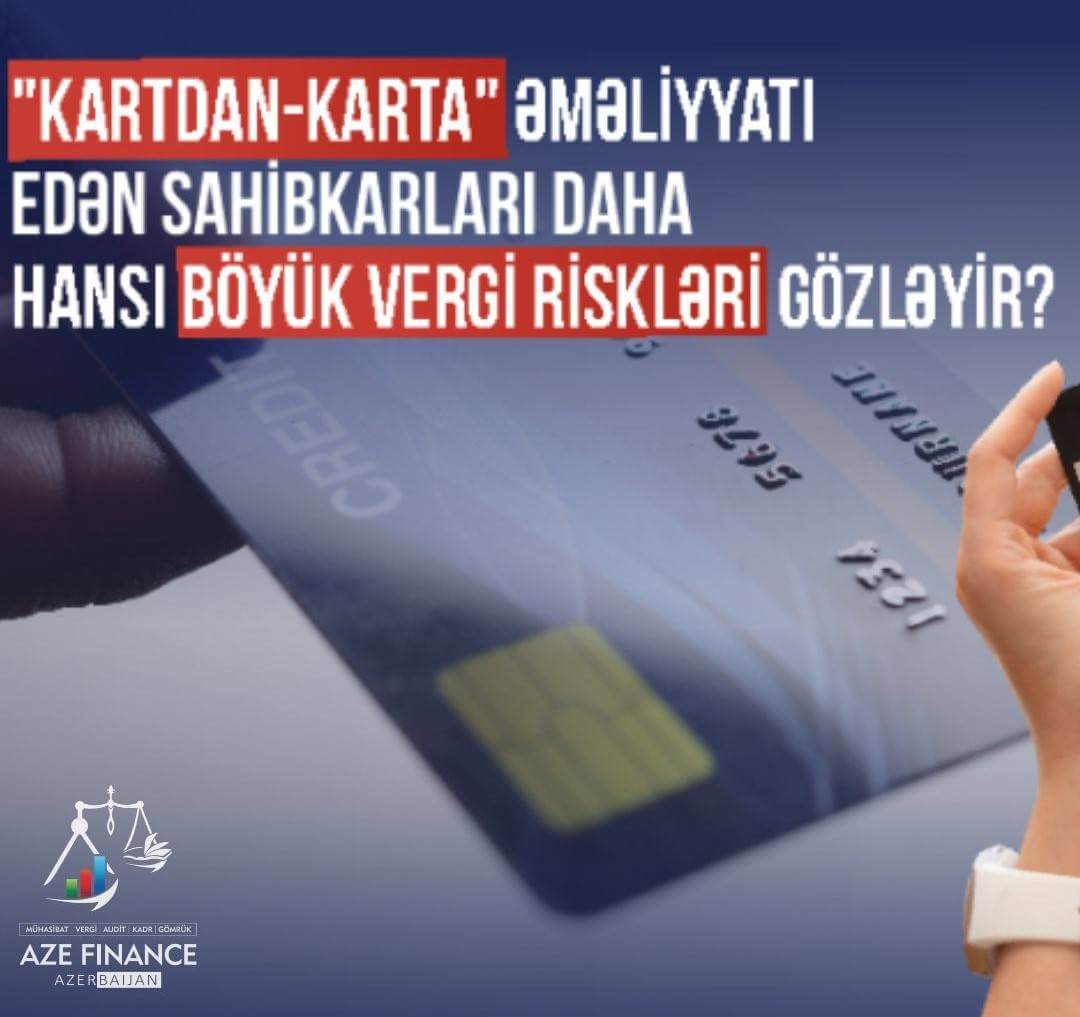What other major risks await entrepreneurs who receive payments via the "card-to-card" method?
What other major risks await entrepreneurs who receive payments via the "card-to-card" method?

"As you know, in recent days, the State Tax Service under the Ministry of Economy in our country has been carrying out tax control operations to prevent cases of non-cash payments in retail trade and catering facilities not through POS terminals, but through card-to-card transfer operations. As a result of this inspection, many small entrepreneurs are fined from 1,000 to 6,000 manats for violating the law."
"So what other major risks await entrepreneurs at this time?" Entrepreneurs engaged in retail sales and with a turnover of up to 200,000 manats become taxpayers of 2%, and entrepreneurs with a turnover of more than 200,000 manats become taxpayers of 18%:
"When this turnover exceeds 200,000 manats, a problem arises in that a large number of these entrepreneurs purchase undocumented goods. Since they do not have electronic invoices, these individuals cannot offset the 18% VAT tax in accordance with the law, and since their turnover exceeds 200,000 manats, an additional 20% profit tax arises. In general, these individuals have to pay 38% tax. In the absence of documents confirming expenses, the tax burden increases.
The idea was that we could propose to the State Tax Service to create an opportunity for micro and small entrepreneurs. And based on this opportunity, these entrepreneurs could document the undocumented goods they purchased by December 31, 2024. Thus, with a turnover of 200,000 small business owners whose annual turnover exceeds 200,000 manats can solve problems".
We suggest that entrepreneurs request electronic invoices from the other party for future purchases. Thus, entrepreneurs whose annual turnover exceeds 200,000 manats can easily perform the replacement operation and show the goods they sell as expenses.
"Every small business turns into a big business in the future. If you want to build a successful business, proper accounting is the main condition. We consider establishing a professional accounting policy as a priority for ourselves".

"As you know, in recent days, the State Tax Service under the Ministry of Economy in our country has been carrying out tax control operations to prevent cases of non-cash payments in retail trade and catering facilities not through POS terminals, but through card-to-card transfer operations. As a result of this inspection, many small entrepreneurs are fined from 1,000 to 6,000 manats for violating the law."
"So what other major risks await entrepreneurs at this time?" Entrepreneurs engaged in retail sales and with a turnover of up to 200,000 manats become taxpayers of 2%, and entrepreneurs with a turnover of more than 200,000 manats become taxpayers of 18%:
"When this turnover exceeds 200,000 manats, a problem arises in that a large number of these entrepreneurs purchase undocumented goods. Since they do not have electronic invoices, these individuals cannot offset the 18% VAT tax in accordance with the law, and since their turnover exceeds 200,000 manats, an additional 20% profit tax arises. In general, these individuals have to pay 38% tax. In the absence of documents confirming expenses, the tax burden increases.
The idea was that we could propose to the State Tax Service to create an opportunity for micro and small entrepreneurs. And based on this opportunity, these entrepreneurs could document the undocumented goods they purchased by December 31, 2024. Thus, with a turnover of 200,000 small business owners whose annual turnover exceeds 200,000 manats can solve problems".
We suggest that entrepreneurs request electronic invoices from the other party for future purchases. Thus, entrepreneurs whose annual turnover exceeds 200,000 manats can easily perform the replacement operation and show the goods they sell as expenses.
"Every small business turns into a big business in the future. If you want to build a successful business, proper accounting is the main condition. We consider establishing a professional accounting policy as a priority for ourselves".


